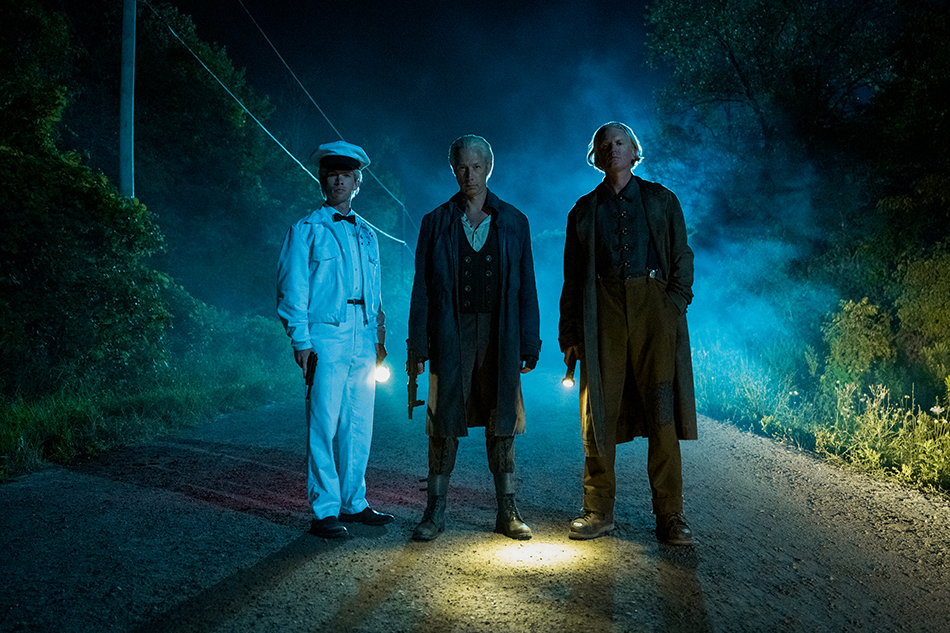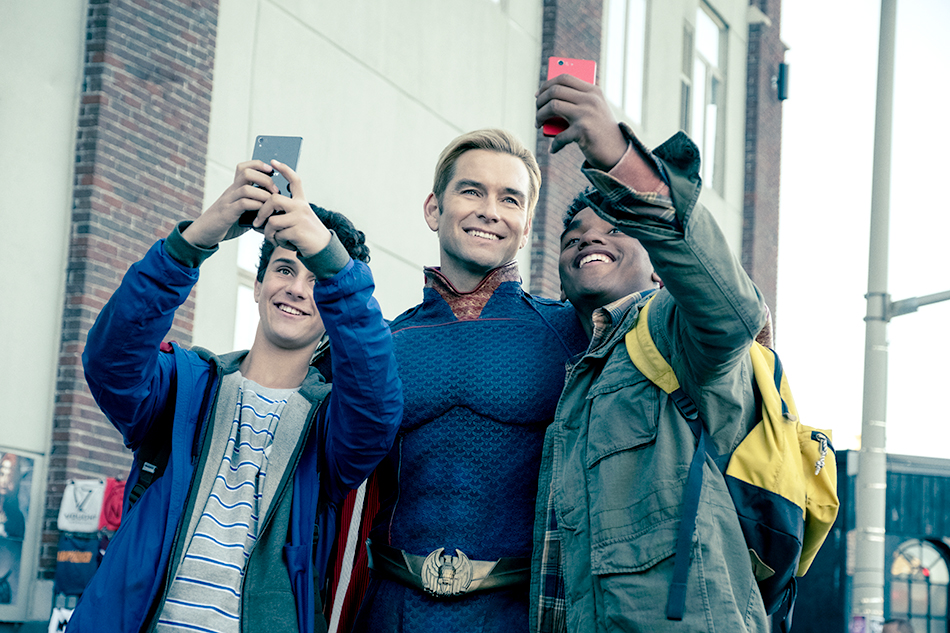More Anti-Heroes Than Superheroes In Comic Book Shows
Networks, producers increasingly look to comics for new series

The smarter way to stay on top of broadcasting and cable industry. Sign up below
You are now subscribed
Your newsletter sign-up was successful
Comic books have been a prime source of TV shows for some time, but the trend has hit what some are calling a second wave, the newer shows having some fun at the expense of superheroes. Netflix’s The Umbrella Academy, Amazon’s The Boys and HBO Max’s Doom Patrol all have new seasons, and these comic book offspring offer an offbeat take on the superhero genre that dominates both movies and comics.
“Superheroes are so omnipresent right now, and some shows look to turn that upside down,” said Eric Kripke, creator and executive producer on The Boys. “We feel like the audience is really hungry for the reaction, the deconstruction to how much superhero stuff is out there.”
Season two of The Boys arrives Friday, Sept. 4. Based on the comic book franchise by Garth Ennis and Darick Robertson, it’s a cheeky look at what happens when superheroes abuse their powers.
Kripke has long been what he called a “superfan” of Ennis’s comics, and was crushed to not get to produce Preacher, which was based on an Ennis comic and ran on AMC 2016-2019. When The Boys was in the works, Kripke pushed hard for a role in it.
Comic Crush
Comic books have long been a source for TV series, and the genre has hit a high point in the last decade. AMC debuted The Walking Dead, from a Robert Kirkman comic, in 2010. Netflix had Daredevil, Jessica Jones, The Iron Fist and Luke Cage, all from Marvel. The CW has Riverdale, which stemmed from Archie Comics, and the DC Comics-inspired “Arrowverse,” including Arrow, Supergirl, Batwoman and DC’s Legends of Tomorrow. HBO’s Peabody Award-winning Watchmen was originally a DC Comics series.
“The more outlets that are ordering original programs, the more they will turn to existing I.P., and comics are an ideal source,” Myles McNutt, assistant professor of communication and theatre arts at Old Dominion University and contributor to The AV Club, said. “They offer a wealth of existing source material, sometimes spanning over decades, and their stories are often serialized, giving producers a strong framework to
work from.”
The smarter way to stay on top of broadcasting and cable industry. Sign up below
Season two of Doom Patrol started June 25. The characters include Negative Man, Crazy Jane and Robotman. HBO Max calls them “DC’s strangest group of heroes.”
“There’s a lot of layers to the show,” Jeremy Carver, executive producer and showrunner said. “Our superheroes don’t even like superheroes.”
The Boys sees some pretty ordinary humans take on a self-reverential gang of superheroes. “The superhero stuff out there is so overwhelming that someone had to take the piss out of it,” Kripke said.
Season two of The Umbrella Academy begins on Netflix July 31. Based on a comic book series from My Chemical Romance singer Gerard Way, it is the story of 43 babies born to unconnected women who showed no signs of pregnancy. Seven are adopted by a billionaire, who trains them to save the world.
Creator Steve Blackman was not familiar with the comic franchise, but was intrigued when he found out Way was behind it. He saw it not as “a graphic novel about superheroes, but a story about a dysfunctional family.”
Moving In New Directions
There are significant challenges to turning print stories to television, and doing so in a way that wins over diehard fans of the comics. The half-dozen Marvel shows on Netflix, for one, did not enjoy particularly long runs.

Producers say the biggest challenge is when to be faithful to the source material and when to take it in a different direction. “You cannot do a one-to-one translation,” Kripke said. “Trying to adapt it word-for-word would be disappointing for everybody.”
Kripke described his strategy as “take what you love from the comic and remix it for the show,” which he likened to “an incredibly stressful game of Jenga.”
Blackman mentioned being “inspired by the source material and bringing my own voice to it. Ultimately, you want to respect the existing fans while attracting a whole new audience.”
Comic books offer a rich palette for producers and a trove of established entertainment brands as more and more networks hunt for compelling original content. “If there was once a time when people presumed that a comic book meant a superhero story for young kids, the breadth of adaptations across both film and television has shifted that discourse,” McNutt said, “meaning that the
industry has more latitude to explore the medium’s thematic and generic range.”
Michael Malone is content director at B+C and Multichannel News. He joined B+C in 2005 and has covered network programming, including entertainment, news and sports on broadcast, cable and streaming; and local broadcast television, including writing the "Local News Close-Up" market profiles. He also hosted the podcasts "Busted Pilot" and "Series Business." His journalism has also appeared in The New York Times, The L.A. Times, The Boston Globe and New York magazine.

